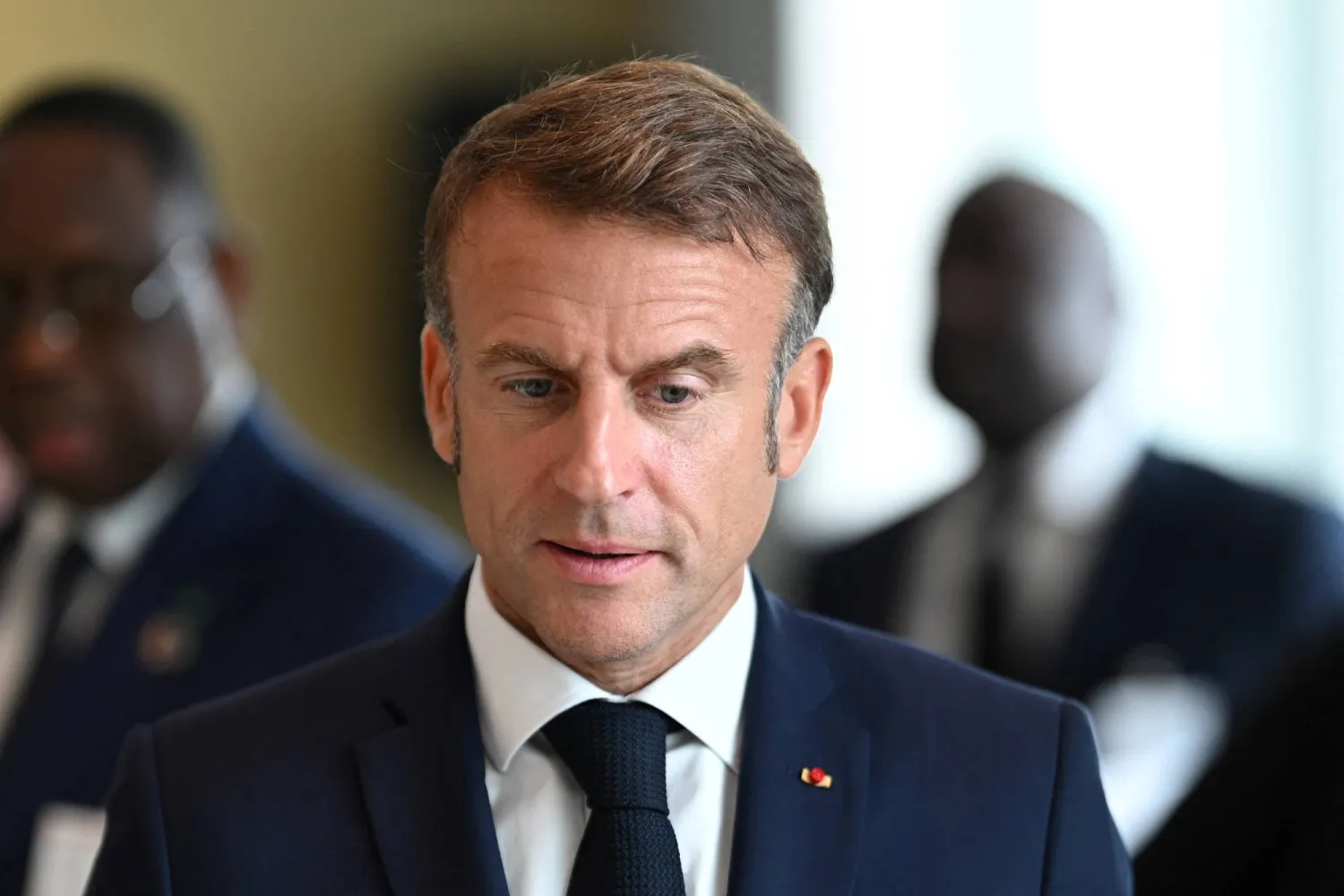French President Emmanuel Macron said following talks with Lebanese caretaker Prime Minister Najib Mikati in New York on Wednesday that he was “very concerned” about the situation in Lebanon amid an escalating conflict between Israel and Hezbollah.
When asked by Asharq Al-Awsat about an initiative on Lebanon, Macron replied: “I will refer to that a bit later. We are finalizing it. We worked very hard. I was just with Prime Minister Mikati.”
“I am very worried and concerned by what is happening in Lebanon and I am in total solidarity with the people of Lebanon,” he added.
Macron’s remarks to Asharq Al-Awsat came as US President Joe Biden said Wednesday that “all-out war” is still possible.
Biden spoke during an interview on ABC’s “The View.”
He said that he thinks the opportunity also exists “to have a settlement that can fundamentally change the whole region.”
“It’s possible and I’m using every bit of energy I have with my team ... to get this done,” he said. “There’s a desire to see change in the region.”
US Secretary of State Antony Blinken has been urging both Israel and Hezbollah to step back from their current intensifying conflict, saying that all-out war would be disastrous for the region.
Blinken said Wednesday the US was working on a plan to de-escalate tensions and allow tens of thousands of Israelis and Lebanese to return to homes they have had to evacuate in border areas.
“The best way to get that is not through war, not through escalation,” he said.
“It would be through a diplomatic agreement that has forces pulled back from the border, create a secure environment, people return home,” Blinken said. “That’s what we’re driving toward because while there’s a very legitimate issue here, we don’t think that war is the solution.”
“What we’re focused on now, including with many partners here in New York at the UN General Assembly, the Arab world, Europeans and others, is a plan to de-escalate,” Blinken said.









